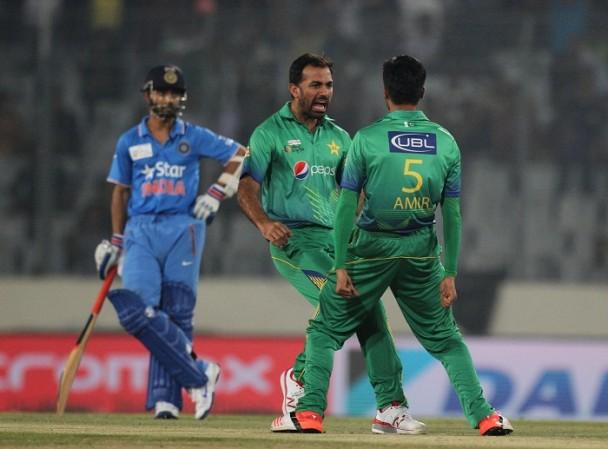Uncertainty is looming over an India vs Pakistan cricket clash as the political heat between the neighbouring nations continues to rise. Before the World Cup, there was a lot of clamour around India boycotting their match against Pakistan. BCCI had also approached the ICC to isolate their arch-rivals.
However, giving clarity over the sequence of events, CoA chief Vinod Rai revealed what the BCCI thought, which was a reaction to the common public sentiments.
"There was a rhetoric built up over here that India should refuse to play with Pakistan. People were saying it, the media was reporting it. The media was not cooking it up. The media reports, picks up news from the ground," Rai told Indian Express.
Why BCCI wanted to isolate Pakistan in the World Cup

Speaking about the move to isolate Pakistan, Rai said that the letter was sent to ICC in order to refrain from meeting the arch-rivals in any match, for instance.
"If we don't play Pakistan (in the World Cup), we lose one point, two points, and that doesn't matter. But suppose Pakistan comes up in the semi-final and we withdraw. Isn't that shooting yourself in the foot? We would be closing avenues for ourselves. Which, I thought, was an incorrect move. So I said, rather than shooting ourselves in the foot, let's isolate them," he further added.
So what does the future hold for India vs Pakistan cricket encounters? Rai said that the policy is determined by the Government and that both sides will not play each other in their respective countries. But matches can be played in global tournaments at neutral venues.
"On playing Pakistan, I think there is a government policy…that you can play on neutral territory, and not on each other's… We are very clear in our minds that on neutral territory we will play any country," Rai explained.
If these statements are anything to go by, it is safe to say that we can rule out any India-Pakistan bilateral series in the near future. However, the nations could face off in global events and even in neutral venues as per the set regulations and understanding, as explained by Vinod Rai.









!['Had denied Housefull franchise as they wanted me to wear a bikini': Tia Bajpai on turning down bold scripts [Exclusive]](https://data1.ibtimes.co.in/en/full/806605/had-denied-housefull-franchise-they-wanted-me-wear-bikini-tia-bajpai-turning-down-bold.png?w=220&h=138)



